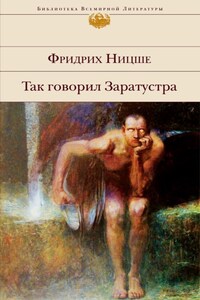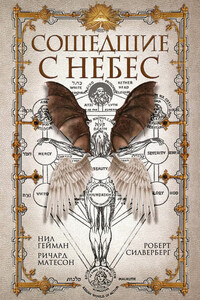CHAPTER I
GORDON GETS A LETTER
When Gordon Merrick neared the corner of Troutman Street he slowed down his bicycle and finally drew in at the curb, putting out a foot to hold himself in the saddle while he deliberated. So deep in thought was he that when the yellow watering cart trundled up, the driver half asleep under the blue and white umbrella, he never knew of it until the sprinkler had drenched him from foot to knee. The driver awoke at that moment and, looking back, saw Gordon.
“Hi, there!” he shouted. “Look out!”
Gordon, aroused from his thoughts by the unexpected bath, smiled.
“Why?” he asked. “Are you coming back?”
The joke was lost on the driver of the watering cart, however. He only scowled and settled back to slumber again. Gordon chuckled, and glanced ruefully at his drenched trouser-leg. Except for the looks of that no harm had been done, for it was a hot morning in early July and the feeling of the cool water against his leg had been decidedly pleasant. Evidently the incident had brought a decision in the weighty problem which had confronted him, for with no more hesitation he turned his wheel to the left and peddled on down E Street.
“I’ll talk to Dick about it,” he said to himself. “He always knows what to do.”
The Loverings lived in the third house from the corner, one of a half-dozen modest abodes occupying that side of the block. All the houses were painted white, although differing slightly in the simplicity of their architecture, and all were more or less hidden from view by hedges of lilac or arbor-vitæ. Old-fashioned white picket fences peeked out between the leaves of the hedges. The street itself was old-fashioned. Ten years before it had been in the desirable part of Clearfield, but since then the residential center had worked westward and the row of quiet, green-shuttered cottages was being closed in by such unsavory neighbors as livery stables and dye works and tenements.
Dick Lovering hailed Gordon from the vine-screened porch as the latter jumped from his bicycle and leaned it against the hitching-post in front of the little gate. “Hello, Gordie! Come on up.”
Dick was seated at the cool end of the porch, which stretched the width of the house. There was a table beside him which held a few flowers in a quaint old green vase and many books and magazines. Dick’s crutches stood against the wall within reach, for Dick, as he put it, was “very fond of his crutches and never went anywhere without them.” He was seventeen, a tall, nice-looking boy with dark hair and eyes and just the smallest suggestion of pallor on his lean cheeks. As Gordon came up the steps Dick laid down the magazine he had been reading and smiled his pleasant smile.
“Been in the pond?” he asked, viewing the other’s wet trousers.
“Watering cart soused me at the corner. How are you, Dickums?”
“Fine. Swell weather, isn’t it? You look warm, though.”
“So would you if you’d been riding all over town. Say, I got a letter from Bert Cable this morning and I want you to see what you think about it. I’ve got it here somewhere.”
“Where is Bert?” asked Dick as Gordon searched his pockets.
“Bridgeport, Connecticut. He’s working for his uncle in some sort of a factory over there. He told me he was going to get eight dollars a week. Here it is. You’d better read it.”
“You do it,” smiled Dick. “I’m lazy to-day.”
“Well, he says – Where is it? – Here we are. ‘I’m sending a letter that came the other day from Caspar Billings. He thinks we’re still playing ball and wants a game with us. I haven’t answered it. What I was thinking was why don’t you and Lansing and Fudge Shaw and some of the fellows get a team together and play the Point? You could have a lot of fun. Those fellows at the Point aren’t anything to be scared of. You could get up a team that would wallop them easy. Tom Haley would pitch for you and Lansing could catch and you could play first. Why don’t you? Anyway, you answer the letter. I’m awfully busy here and don’t have much time for writing letters. This is a swell town, lots going on all the time and plenty of baseball. Remember me to all the fellows and tell Harry Bryan when you see him that he’s got my glove and is to send it to me because I may need it. We’re getting up a team here at the factory. We’ve got a dandy pitcher and I guess they’ll put me at short. Don’t forget to write to Billings anyway. Yours truly, Bert.’”
Gordon looked inquiringly across at Dick. “What do you think?” he asked.
“Why, I dare say they will.”
“Dare say who will? Will what?”
“Put Bert at short,” chuckled Dick.
“Oh, you know what I mean! What do you think of the scheme?”
“Good, I’d say. I suppose,” with a humorous glance at his crutches, “you came around to see if I’d play third base for you.”
“Wish you could, Dickums. Gee, I don’t see how you can always be so cheerful about – about it! I couldn’t.”
“Well, it isn’t hard, Gordie, when you’ve had seventeen years’ practice. Of course, if I’d been able to get around like other fellows and then – then had this happen I guess it would be different. Anyhow, a chap might as well be cheerful as anything else. After all, I don’t miss much fun. I can’t play games or run or skate or – or do a lot of things I’d like to, but I can watch the rest of you and I can make believe that if I














